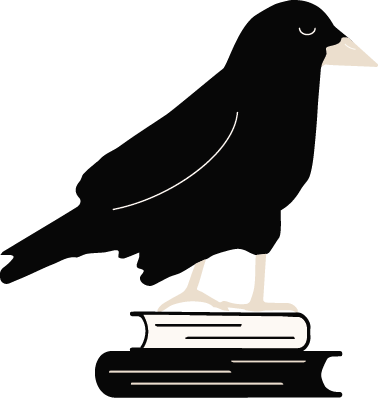
A few weeks ago, my partner and I watched Captain Fantastic, the quirky Vigo Mortensen movie about a man living in the woods with his many children on a quest to save his dead wife from a Christian funeral she didn’t want. Great movie; definitely recommend.
In the movie, Vigo’s daughter is reading Lolita. He asks her what she thinks, and she says, “It’s… interesting.” Her younger siblings overhear, and break out into a cacophony of “Interesting!” “Illegal word!” “Yeah, can’t say interesting!”
Vigo nods and says, “Interesting is a non-word. You know you’re supposed to avoid it. Be specific.” His daughter thinks and says, “It’s disturbing.” Vigo replies, “More specific.”
She then proceeds to describe the story, and he interrupts again: “That’s the plot.” And finally she thinks about it and gives a thoughtful answer about why Lolita is a disturbing book.
There was a lot to love about this movie, but this scene was my favourite. Because Vigo’s right: “interesting” is an empty, meaningless word.
“Interesting” is a lazy word.
To say that something is interesting is to say that it’s worthy of interest, but not why or how. To call something interesting doesn’t take any thought or effort or analysis. Whether you’re writing fiction or nonfiction, or just having a conversation, you can do better than “interesting.”
Words like “interesting” often show up as adverbs. Ever started a sentence with “Interestingly”? Or “remarkably” or “notably” or “fascinatingly”? Or, even worse, “It goes without saying that”?
These words are empty because they don’t tell your reader anything. There’s no point in saying “It goes without saying” about something that you’re about to talk about. If it actually went without saying, you wouldn’t say it. And for words like “interestingly” or “remarkably,” if it wasn’t worth remarking upon, you wouldn’t be remarking upon it.
What to say instead of “interesting”
Why is something interesting? What about it draws your interest, or your character’s interest? What makes you or your character stop and go, “Huh, that’s interesting!”
Whether you’re telling a story or writing an essay, you want your words to mean something. Remember that your reader can’t see what your character sees, and thus needs a better description than “interesting.” As Captain Fantastic reminds us, “Be specific.”
“Interesting” is infinitely vague: it could refer to an unusual rock on the side of the road or an elephant with three heads.
As the writer, you are your reader’s only access point to the story. Don’t say, “It was an interesting house”; say, “The house had arching windows with decorative lattice climbing its orange walls and vines of ivy clinging to its crevices.”
Every time you use an empty word like “interesting,” you lose a chance to grab your reader’s interest and pull them deeper into your writing. You’ve missed an opportunity to be specific, to bring substance to your setting or your argument.
You want to be interesting (or, better yet, persuasive or creative or sinister), not say it.
Are empty words ever appropriate?
My exception to the “no empty words” rule is dialogue. We do use words like “interesting” in speech, and therefore our character can too. But try to challenge them when they do, like Vigo does in Captain Fantastic. Have someone ask them why the thing in question is interesting.
Maybe your detective character leans over a clue and says, “Interesting… this bloodstain was here before our victim was murdered.” This works because you’ve immediately explained what the interesting thing is. Even here, though, we could replace “interesting” with “strange” or “suspicious,” which are inherently more descriptive and more intriguing than “interesting.”
There are no hard-and-fast, no-exception rules in writing, especially when it comes to dialogue. (I mean, not no rules. Don’t be a Nazi. Don’t describe women in a way that would land you on the @MenWriteWomen Twitter account. But you know what I mean.)
Could your writing be more specific?
Sometimes we all struggle with finding the right words. Empty words or phrases slip into our writing without us noticing, and sometimes it’s only when someone else edits those words out that we realize our writing is better and more specific as a result.
That’s what editors are here for. As an editor, I delight in finding empty words and replacing them with specificity. I think the world becomes a better place every time “Interestingly” is removed from the beginning of a sentence.
If you need help tightening your writing and losing empty words, Rookwood Editing is here to help. Get in touch today!
Molly Rookwood is an editor, reader, tea drinker, and cat mum in Halifax, Nova Scotia. She loves Jane Austen and epic fantasy, and her bookshelves are forever overburdened. When she’s not playing D&D or taking turns about the room, she can be reached at molly@rookwoodediting.com or by following @RookwoodEditing on Twitter.








